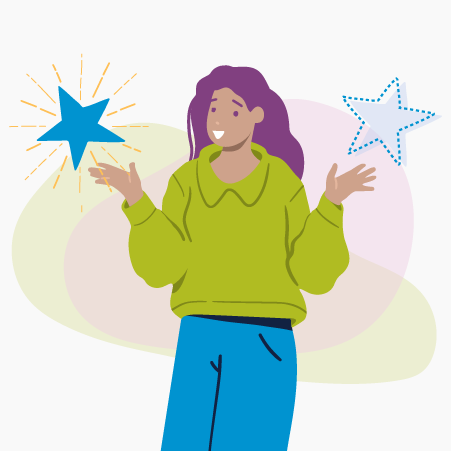Identify the Signs of Communication Disorders
 The following are signs of common speech and language disorders in children between birth to 4 years of age, an important stage in early detection of communication disorders.
The following are signs of common speech and language disorders in children between birth to 4 years of age, an important stage in early detection of communication disorders.
Warning Signs of Communication Disorders
Signs of a Language Disorder
- Does not smile or interact with others (birth and older)
- Does not babble (4-7 months)
- Makes only a few sounds or gestures, like pointing (7-12 months)
- Does not understand what others say (7 months-2 years)
- Says only a few words (12-18 months)
- Words are not easily understood (18 months-2 years)
- Does not put words together to make sentences (1.5-3 years)
- Has trouble playing and talking with other children (2-3 years)
- Has trouble with early reading and writing skills* (2.5-3 years)
*Early reading and writing skills include:
8 months–1 year: Likes to hear you talk and read; looks at pictures in books when you read
1–2 years: Makes sounds or words when looking at pictures in books; points or touches pictures in books when you name them; turns pages in books
2–3 years: Knows that books have a front and back; enjoys books that have rhymes; points to and names many pictures in books
What Parents Can Do
- Listen and respond to your child
- Talk, read, and play with your child
- Talk with your child in the language you are most comfortable using
- Know it is good to teach your child to speak a second language
- Talk about what you are doing and what your child is doing
- Use a lot of different words with your child
- Use longer sentences as your child gets older
- Have your child play with other children
Signs of a Speech Sound Disorder
- Says p, b, m, h, and w incorrectly in words (1-2 years)
- Says k, g, f, t, d, and n incorrectly in words (2-3 years)
- Produces speech that is unclear, even to familiar people (2-3 years)
What Parents Can Do
- Say the sounds correctly when you talk—it is okay if your child makes some mistakes with sounds
- Do not correct speech sounds—it is more important to let your child keep talking
Signs of Stuttering (Disfluency)
- Struggles to say sounds or words (2.5-3 years)
- Repeats first sounds of words—”b-b-b-ball” for “ball” (2.5-3 years)
- Pauses a lot while talking (2.5-3 years)
- Stretches sounds out—”f-f-f-f-farm” for “farm” (2.5-3 years)
What Parents Can Do
- Give your child time to talk
- Do not interrupt, stop, or tell your child to slow down while they are speaking
- See a certified speech-language pathologist if you are concerned
Signs of a Voice Disorder
- Uses a hoarse or breathy voice
- Uses a nasal-sounding voice
What Parents Can Do
- See a doctor if your child sounds hoarse or breathy
- Tell your child to avoid shouting and screaming
- Drink water throughout the day
- Include quiet time/voice rest during the day
Identify the Signs is a campaign sponsored by the National Association for Hearing and Speech Action (NAHSA), the consumer affiliate of the American Speech-Language-Hearing Association.
Visit the Identify the Signs site to learn more about communication disorder warning signs and the steps parents can take to address them.
Source: American Speech-Language-Hearing Association | Know the Signs of Speech and Language Disorders, https://identifythesigns.org/signs-of-speech-and-language-disorders | © 2013-2023 American Speech-Language-Hearing Association. Public awareness campaign, republished with permission.
Do you have concerns about your child? We invite you to call our Care Coordinators at 650.688.3625 or email us at careteam@chconline.org to set up an initial Parent Consultation appointment.





